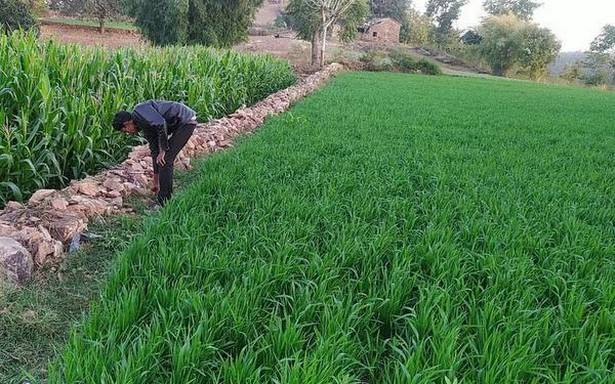It brings food security to indigenous communities in the tribal-dominated region
A sustainable integrated farming system adopted in some villages of Pratapgarh and Banswara districts in southern Rajasthan has created new livelihood sources and brought food security to indigenous communities in the tribal-dominated region. Women’s groups were instrumental in promoting farm practices which have benefited the villagers.
The project, supported by Germany’s Karl Kubel Foundation for Child and Family, entailed adoption of organic farming, manure, medicines and pesticides and establishment of vermicompost units at agricultural fields. The locally prepared organic manure was used for growing maize, wheat, urad and other crops.
The integrated system has reduced the tribals’ dependence on market and improved nutritional status of the local population. Developing Poshan Vatikas (nutrition gardens) in the vicinity of their houses has especially helped the villagers meet their daily food necessities by growing fruits and vegetables at a low cost.
Soil conservation
About 400 small and marginal farmer families in seven villages of Pratapargh’s Peepalkhunt tehsil and 15 villages of Banswara’s Ghatol tehsil have adopted soil conservation practices like farm bunding around the fields for moisture retention. This has led to an increase in agricultural production and diversification of crops.
Banswara-based Vaagdhara group, which is working on tribal livelihood issues and has carried out implementation of the new system, has identified the key areas of intervention which would help ensure availability of food throughout the year with optimum utilisation of water and also increase sources of income for the tribal farmers.
Vaagdhara secretary Jayesh Joshi said the State government should incorporate all the locally aligned components of integrated farming into its agricultural policies and generate resources for marginal farmers. “Institutions like Krishi Vigyan Kendra can select and train local farmers in the agricultural practices useful for specific regions,” Mr. Joshi said.
Trendsetters for others
While the women farmers in Pratapgarh’s Dharna village formed a Saksham Samooh group to promote sustainable farming, the Morwaniya village panchayat felicitated a farmer, Dhuleshwar Ninama, with the title of Krishi Mitra for his efforts to mobilise tribal cultivators and strengthen food security. He is receiving an honorarium of ₹6,000 per month from the Agriculture Department.
Another member of a women’s group, Tulsi Devi, from Banswara’s Undwela village, adopted soil conservation practices at her field and started growing crops in addition to maize which she was growing earlier. Farmers like her in the two districts have become trendsetters for others for earning additional income by increasing crop yields in their rugged farmland.
Source: Read Full Article

